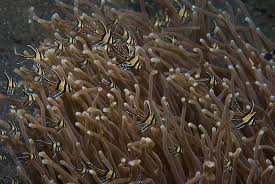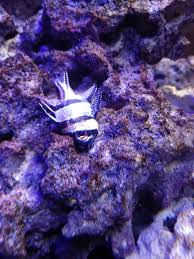Key Takeaways:
- Hiccups can be triggered by various factors, including eating too quickly, consuming carbonated beverages, and emotional stress.
- Home remedies like holding your breath and drinking water can provide immediate relief.
- Medical treatments such as prescription medications and acupuncture may be necessary for persistent or severe hiccups.
- Lifestyle changes like managing stress and practicing diaphragmatic breathing can help prevent hiccups from occurring
Introduction
Hiccups, those sudden and involuntary contractions of the diaphragm, can disrupt our daily lives, but understanding their causes and effective remedies can bring relief. In this comprehensive guide, we’ve delved into the various triggers of hiccups, from eating too quickly to underlying medical conditions. We’ve explored simple home remedies like holding your breath and drinking water, as well as medical treatments such as prescription medications and acupuncture. Additionally, lifestyle changes like managing stress and practicing diaphragmatic breathing can help prevent hiccups from occurring. With this knowledge in hand, individuals can take proactive steps to manage and alleviate hiccups effectively.
Causes of Hiccups
Hiccups can be triggered by a variety of factors, ranging from consuming certain foods or beverages to underlying medical conditions. Some common causes include:
1. Eating Too Quickly or Overeating Consuming food or beverages too quickly can lead to swallowing air, which can irritate the diaphragm and trigger hiccups. Overeating can also put pressure on the diaphragm, leading to the same result.
2. Carbonated Beverages Drinking carbonated beverages, such as soda or sparkling water, can cause the stomach to expand, leading to irritation of the diaphragm and subsequent hiccups.
3. Spicy Foods Spicy foods can stimulate the nerves in the esophagus and stomach, leading to hiccups in some individuals.
4. Emotional Stress or Excitement Strong emotions, such as stress, anxiety, or excitement, can trigger hiccups by affecting the normal functioning of the diaphragm.
5. Sudden Temperature Changes Sudden changes in temperature, such as going from a warm environment to a cold one, can stimulate the vagus nerve, which may result in hiccups.
6. Alcohol Consumption Consuming alcohol can relax the muscles in the throat and stomach, leading to irritation of the diaphragm and hiccups.
7. Smoking Smoking or exposure to secondhand smoke can irritate the diaphragm and trigger hiccups in some individuals.
8. Underlying Medical Conditions In some cases, persistent hiccups may be a symptom of an underlying medical condition, such as gastroesophageal reflux disease (GERD), pneumonia, or a nervous system disorder.
How Hiccups Work
To understand how to get rid of hiccups, it’s helpful to know how they occur. Hiccups are caused by involuntary contractions of the diaphragm muscle, which separates the chest cavity from the abdominal cavity and plays a crucial role in breathing. When the diaphragm contracts suddenly, it causes a rapid intake of air, which is then stopped by the closure of the vocal cords, resulting in the characteristic “hic” sound.
Home Remedies for Hiccups
1. Holding Your Breath One common method for stopping hiccups is to hold your breath. This technique helps increase the carbon dioxide levels in your bloodstream, which can help relax the diaphragm and stop the spasms causing the hiccups. Here’s how to do it:
- Take a deep breath and hold it for as long as you comfortably can.
- Exhale slowly and repeat if necessary.
2. Drinking Water Drinking a glass of water quickly and in one go can help interrupt the hiccup cycle. The act of swallowing may help reset the diaphragm and stop the spasms. For best results, drink the water from the far side of the glass, leaning forward if needed.
3. Swallowing Granulated Sugar Another old-fashioned remedy for hiccups is swallowing a teaspoon of granulated sugar. The grainy texture of the sugar may help stimulate the vagus nerve, which can interrupt the hiccup reflex.
4. Gargling with Cold Water Gargling with cold water may help stimulate the back of the throat and interrupt the hiccup reflex. Simply take a mouthful of cold water and gargle for a few seconds before spitting it out.
5. Eating a Spoonful of Peanut Butter Some people find relief from hiccups by eating a spoonful of peanut butter. The thick consistency of peanut butter may help stimulate the vagus nerve and interrupt the hiccup reflex.
6. Biting on a Lemon Biting into a slice of lemon or sucking on a lemon wedge may help stop hiccups for some individuals. The sour taste of lemon may stimulate the nerves in the throat and interrupt the hiccup reflex.
7. Applying Pressure to the Diaphragm Applying gentle pressure to the diaphragm may help stop hiccups. You can do this by gently pressing on the area just below your ribcage for a few seconds.
8. Practicing Deep Breathing Practicing deep breathing exercises may help relax the diaphragm and alleviate hiccups. Try inhaling slowly through your nose, filling your lungs with air, and then exhaling slowly through your mouth.
Medical Treatments and Lifestyle Changes
While home remedies can be effective for many individuals, persistent or severe hiccups may require medical intervention or lifestyle changes. In this section, we’ll explore some additional methods for getting rid of hiccups, including medical treatments and lifestyle adjustments.
1. Prescription Medications For individuals with persistent or severe hiccups, a doctor may prescribe medications to help alleviate symptoms. These medications may include:
- Muscle relaxants: Medications that help relax the diaphragm and reduce spasms.
- Proton pump inhibitors (PPIs): Medications that reduce stomach acid production and may help alleviate hiccups caused by gastroesophageal reflux disease (GERD).
- Baclofen: A medication that acts on the central nervous system and may help reduce hiccups.
2. Acupuncture Acupuncture, a traditional Chinese medicine practice that involves inserting thin needles into specific points on the body, may help alleviate hiccups for some individuals. While more research is needed to understand the effectiveness of acupuncture for hiccups, some people find relief from this alternative therapy.
3. Hypnosis Hypnosis, a therapeutic technique that involves deep relaxation and focused attention, may help alleviate hiccups by calming the nervous system and reducing stress. Some individuals have reported success with hypnosis as a treatment for persistent hiccups.
4. Lifestyle Changes Making certain lifestyle changes may help prevent or reduce the frequency of hiccups. Some tips include:
- Eating and drinking slowly to avoid swallowing air.
- Avoiding carbonated beverages, spicy foods, and other known triggers.
- Managing stress through relaxation techniques, such as meditation or yoga.
- Quitting smoking and avoiding exposure to secondhand smoke.
- Maintaining a healthy weight and avoiding overeating.
5. Diaphragmatic Breathing Exercises Diaphragmatic breathing exercises, also known as belly breathing, may help strengthen the diaphragm and prevent hiccups. To practice diaphragmatic breathing, lie on your back with your knees bent and place one hand on your abdomen. Inhale deeply through your nose, allowing your abdomen to rise, and then exhale slowly through your mouth, allowing your abdomen to fall.
6. Surgery In rare cases, surgery may be recommended to treat persistent hiccups that do not respond to other treatments. Surgical options may include diaphragmatic pacing, in which electrodes are implanted in the diaphragm to stimulate it, or phrenic nerve surgery, in which the phrenic nerve, which controls the diaphragm, is surgically altered.
Additional Tips for Managing Hiccups
In addition to the methods mentioned earlier, here are some additional tips for managing hiccups effectively:
- Stay hydrated: Drinking an adequate amount of water throughout the day can help prevent hiccups by keeping the body properly hydrated.
- Avoid tight clothing: Wearing tight clothing, especially around the abdomen, can put pressure on the diaphragm and increase the risk of hiccups.
- Use relaxation techniques: Practicing relaxation techniques such as deep breathing, meditation, or progressive muscle relaxation can help calm the nervous system and reduce the likelihood of hiccups.
- Seek medical attention if necessary: If hiccups persist for more than 48 hours or are accompanied by other concerning symptoms such as difficulty breathing, chest pain, or vomiting, it’s important to seek medical attention promptly.
Conclusion
Hiccups, while often harmless, can be annoying and disruptive. By understanding the causes of hiccups and exploring various methods for getting rid of them, individuals can find relief and improve their quality of life. Whether using simple home remedies, seeking medical treatment, or making lifestyle changes, there are many options available for managing hiccups effectively. By incorporating these tips into their daily routine, individuals can banish hiccups for good and enjoy a hiccup-free life.










